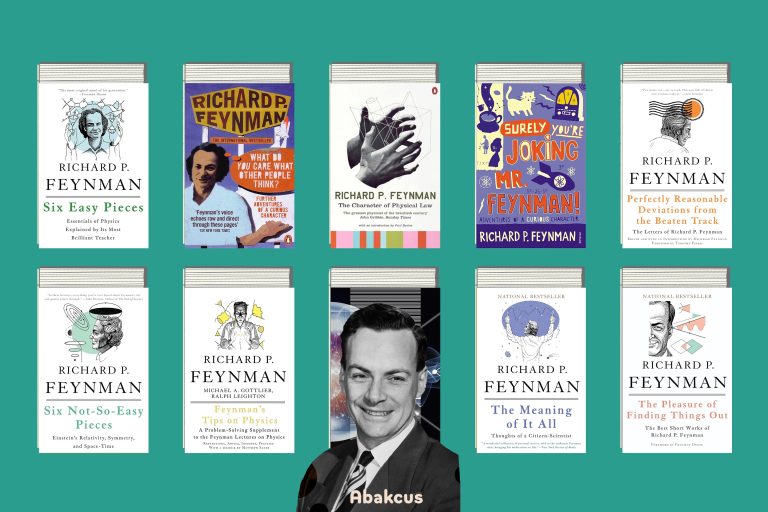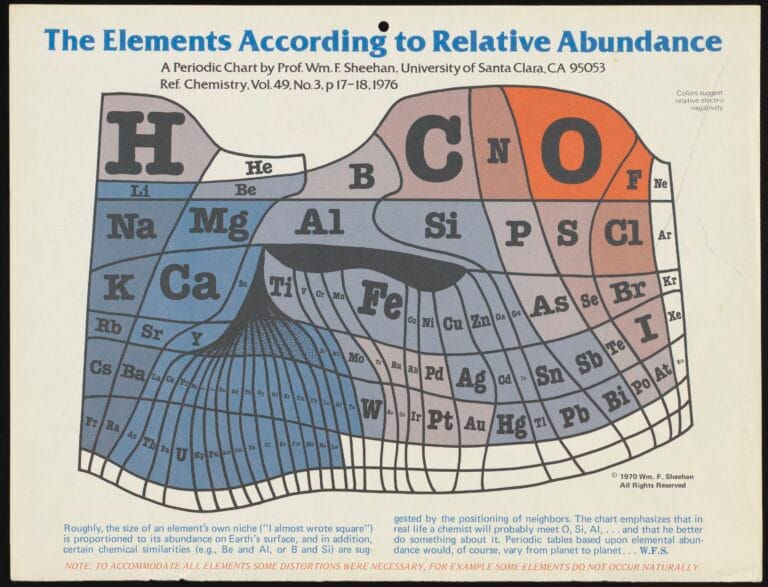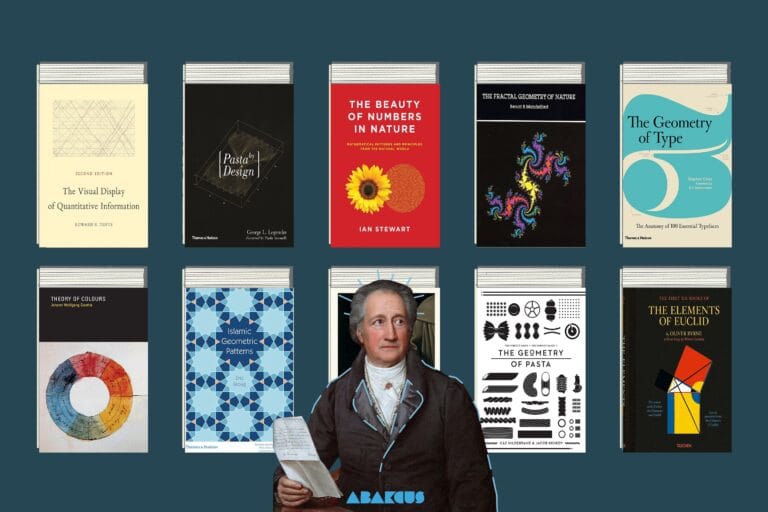Embarking on a journey through the world of science can be an exhilarating experience, especially for those who are just beginning to explore its wonders. Science is all around us, shaping our everyday lives in myriad ways. From the mysteries of the cosmos to the minute workings of atoms, there’s something fascinating for everyone. If you’re on the hunt for insightful reads that make complex concepts accessible and engaging, then you’ve come to the right place. This carefully curated list features the best science books for beginners, designed to introduce you to the captivating realms of scientific thought and discovery.
Table of Contents
Best Science Books for Beginners

These best science books are written in plain, easy-to-understand language, perfect for anyone looking to dive into different branches of science without feeling overwhelmed. Whether you’re interested in unraveling the secrets of the universe, understanding the intricate complexities of the human body, or simply wanting to know how the weather works, these science books for beginners will guide you step by step. They not only educate but also inspire, fueling your curiosity to learn even more. So, grab a cozy spot, pick a title from our best science books for beginners, and prepare for a fascinating adventure into the world of knowledge.
A Short History of Nearly Everything by Bill Bryson

This book really impressed me; it’s one of the standout reads of the year, despite being two decades old. Sure, some of the information is outdated—like the fact that Pluto was still considered a planet—but it remains an engaging read. Bryson takes various scientific concepts and theories, making them both entertaining and informative. He cleverly connects all these ideas to give us a broad perspective on how humanity’s understanding of the universe has evolved. It’s incredible to trace how each generation expanded our view of the world.
Besides the fascinating content, Bryson’s style shines with his witty remarks and funny commentary, especially when he highlights the petty dramas and rivalries among scientists. It’s eye-opening to realize how many brilliant minds were caught up in ego battles and controversies. The book also challenges the notion of science as an all-knowing force, exposing how much we still don’t understand, even about our own planet. Plus, it carries a strong environmental message, reminding us of the impact humans have made on Earth in such a short time. Truly, it’s one of the best science books for beginners.
“There are three stages in scientific discovery. First, people deny that it is true, then they deny that it is important; finally they credit the wrong person.”
― Bill Bryson, A Short History of Nearly EverythingSurely You’re Joking, Mr. Feynman! by Richard Feynman

This book is a gem through and through and it was pure joy to read. The subtitle “Adventures of a Curious Character” perfectly captures what it’s about. Feynman gives you a look into his mind and life through a bunch of stories. What hit me the most was his love for learning anything and everything. You’d expect a renowned physicist to be all about physics, but Feynman’s curiosity didn’t have limits. He tried his hand at art and even got a gallery show, joined a Brazilian bongo band and performed with them, figured out gambling in Vegas, hung out in Arizona strip bars to learn about human nature, and cracked safes at Los Alamos just for kicks—the list keeps going! My takeaway? It’s awesome to have deep passions, but hobbies are crucial too. I probably need a new hobby myself!
I loved his insights on Brazil’s education. He noticed that students were just memorizing words and formulas without understanding what they were really about, and I think this isn’t just a Brazilian problem in education. One of his big science lessons was never to trust data blindly. Always double-check your sources. Whenever he did experiments, he’d generate his own data, even if numbers were already published. After all, if the giants we’ve built upon got it wrong, everything falls apart. Feynman was a true educator and scientist at heart, passionate about integrity. This book was a fun way to stress that point while being super entertaining. It’s certainly one of the best science books for beginners, fitting well into any list of top science books.
“You have no responsibility to live up to what other people think you ought to accomplish. I have no responsibility to be like they expect me to be. It's their mistake, not my failing.”
― Richard P. Feynman, Surely You're Joking, Mr. Feynman!: Adventures of a Curious CharacterSeven Brief Lessons on Physics by Carlo Rovelli

I’ve always felt a bit lacking when it comes to science. Every time I come across a cool story or an article, it amazes me, but tackling a science book feels daunting. Yet, like Carlo Rovelli says, we naturally want to learn more, so I decided to give it a try with his book, and it was a great decision! Rovelli, an Italian physicist, wrote “Seven Brief Lessons on Physics,” which breaks down complex ideas into simple terms. With only seven short chapters, this book is an awesome pick for beginners looking into science books. It’s just 79 pages, but I read slower to really soak it all up.
Rovelli does a great job explaining concepts like the Theory of Relativity, although Quantum Physics still leaves me a bit puzzled—maybe that’s the point! Even a week after finishing, I remember so much of what I read. He describes how space moves like an ocean, what black holes are, and introduces the Big Bounce theory. The history of physics is covered beautifully, connecting thinkers like Galileo, Newton, Einstein, and Hawking. Rovelli’s way of writing makes it easy to understand the vastness of the universe, making us see Earth as just a small part of it all. It’s oddly comforting and makes our lives feel unique. He writes, “Physics opens windows through which we see far into the distance,” which sums up the book’s strength: offering a glimpse into the depths of physics. If you’re a science newbie like me, this is definitely one of the best science books for beginners.
“Genius hesitates.”
― Carlo Rovelli, Seven Brief Lessons on PhysicsWhen Einstein Walked with Gödel: Excursions to the Edge of Thought by Jim Holt

Everyone online seems to want book recommendations that will totally amaze them. While most go for fiction, I’d argue non-fiction is where it’s at, especially when you’re looking for the best science books for beginners. I picked this one up on a whim since it was on sale for just two bucks, and it was a great decision. The cover and title might throw you off if you’re expecting a deep dive into Einstein and Gödel, because they only show up in one essay. Plus, the cover doesn’t make it obvious that it’s a collection of essays. It’s kind of odd marketing because it’s really suited for people who like a mix of philosophy, math, and physics, with a bit of biography thrown in.
The biography parts are juicy and feel like they could be on a gossip magazine’s front page—either you’ll love that or hate it. Hardcore math and science folks might find some of the essays a bit lacking in depth since they don’t dive into the nitty-gritty math details. But these essays serve up the key ideas pretty well. View this book as a sampler with intriguing concepts—like a buffet of the most fascinating thoughts ever. If something catches your fancy, there’s a Further Reading section to help you dig deeper. That’s the beauty of reading science books; it’s like going on your own adventure to uncover more!
“Bertrand Russell recounts in his autobiography that as an unhappy adolescent he frequently contemplated suicide. But he did not go through with it, he tells us, “because I wished to know more of mathematics.”
― Jim Holt, When Einstein Walked with Gödel: Excursions to the Edge of ThoughtHow Round Is Your Circle?: Where Engineering and Mathematics Meet by John Bryant

As someone who works in tech, diving into “How Round Is Your Circle?” really pushed me to rethink what I consider to be common knowledge. It’s a refreshing reminder of how important it is to question everything, particularly when it comes to what we assume we know in science and technology fields. This book would be a great companion if you’re stuck on a desert island and have a thing for math. Skipping over the preface and afterword, the core of this book is packed with fun examples showing how tough it can be to create simple mathematical shapes in real life.
Each page had me reaching for paper, pencils, rulers, or any metal I could find to give the problems a go myself. That’s pretty high praise for a math-focused read—it’s not just one of the best science books for beginners in the mathematics field, but it’s one of those science books that inspires you to actually get your hands dirty and explore those concepts firsthand. We definitely need more books like this that demystify math and make you want to jump right into it!
"In engineering many applications rely on roundness. No manufacturing process achieves perfection."
― John Bryant, How Round Is Your Circle?: Where Engineering and Mathematics MeetThe Strangest Man: The Hidden Life of Paul Dirac, Mystic of the Atom by Graham Farmelo

I just wrapped up an incredible book! Biographies always grip me, especially when they’re about scientists. This one gave me the whole picture of Paul Dirac’s life and the golden days of quantum mechanics with others like Heisenberg and Schrödinger. Dirac, the youngest to snag a Nobel in his field, was quite the character. He didn’t really get emotions and was super straightforward. He was the quiet type, mostly because his strict dad only spoke to him in French.
There’s a ton of stuff that makes you think of someone with Asperger’s, but what truly stands out is his loyalty to friends and family. Apparently, the only time people saw him cry was over Einstein’s death; not for losing a friend, but because the world lost a science legend. Dirac also had quirky opinions on politics, religion, loved Disney and Odyssey 2001—extra points for that! As a scientist, he was a mix of a physicist, mathematician, and engineer, always searching for simple, beautiful laws of nature. This biography wasn’t just about his achievements in physics but really delved into his unique personality. If you’re into biographies and want the best science books for beginners, this is a must-read!
“Dirac said nothing to his fellow pedestrians, but Kierkegaard would startle some of them by interrogating them about some subject on his mind, following in the tradition of Socrates, whom he called ‘the virtuoso of the casual encounter’.”
― Graham Farmelo, The Strangest Man: The Hidden Life of Paul Dirac, Mystic of the AtomLife’s Devices: The Physical World of Animals and Plants by Steven Vogel

I just picked up a gem of a book on biology—seriously, one of the easiest science reads out there. It’s packed with fun ideas about how living stuff deals with the non-living world. The author really wants us to stop and think about why things are the way they are, like how a fish is way speedier than a duck, or why a big healthy tree usually gets uprooted instead of snapping. Or even, why can a shark do just fine even with a weak-looking skeleton?
This book is great if you’re into science books since it opens up the world of biomechanics in such an accessible way. Even though plants and animals can’t control stuff like gravity or water properties, these things still play a big role in how they evolve. The best part? The book uses real examples and simple experiments you can do at home. If you’re on the lookout for the best science books for beginners, this should definitely be on your list.
“My immodest aim is to change how you view your immediate surroundings.”
― Steveb Vogel, Life’s Devices: The Physical World of Animals and PlantsPhysics and Philosophy: The Revolution in Modern Science by Werner Heisenberg

This has to be one of the coolest reads I’ve ever come across. Heisenberg’s book is so out of the box—it’s refreshing and honestly hard to categorize. This isn’t just physics; it’s Heisenberg’s life story told in a lively, novel-like style. Forget the textbook, this is more of a story about Werner himself, mixing his personal life with key moments from history and famous figures he met—talk about a page-turner! You get to know Heisenberg not just as the brain behind quantum mechanics and the uncertainty principle, but as a person who loved nature, enjoyed music, and wasn’t afraid to roll up his sleeves and work hard.
More than anything, the book paints a vivid picture of the world during his era, especially after WWI, a time when people were keen on learning, playing music, and engaging in philosophical discussions. It’s fascinating how Heisenberg gives us glimpses of these renowned scientists not as distant icons but as real people, sharing anecdotes that are both insightful and humorous. This is undoubtedly among the best science books for beginners and those intrigued by the lives behind major scientific breakthroughs. If you have the chance, dive into this unique blend of science and storytelling—it’s an eye-opener and you won’t regret it!
“Whether we like it or not, modern ways are going to alter and in part destroy traditional customs and values.”
― Werner Heisenberg, Physics and Philosophy: The Revolution in Modern ScienceIn Pursuit of the Unknown: 17 Equations That Changed the World by Ian Stewart

I’m a huge fan of Ian Stewart—his way of writing about mathematics and science is second to none. His books are packed with engaging content, making complex subjects approachable for anyone with a curious mind. “In Pursuit of the Unknown: 17 Equations That Changed the World” is no exception. It explores powerful equations that have shaped history, all explained in an easy-going style. Each chapter kicks off with a helpful summary, breaking down the equation and showing why it matters.
I knew most of these equations already, having a background in physics, but learning about their historical impact was eye-opening. The discussion on the Second Law of Thermodynamics left a big impression on me—Stewart ties it to modern issues, raising important questions. Then there’s the Black-Scholes Equation from the finance world, which was new to me. Stewart’s insights here brought to light the risky financial practices that led to major economic crises. This book doesn’t just teach equations; it sheds light on their real-world consequences. If you’re diving into science books, this is one of the best science books for beginners and anyone wanting to understand the interplay of math and life.
“IQ is a statistical method for quantifying specific kinds of problem-solving ability, mathematically convenient but not necessarily corresponding to a real attribute of the human brain, and not necessarily representing whatever it is that we mean by ‘intelligence’.”
― Ian Stewart, In Pursuit of the Unknown: 17 Equations That Changed the WorldThe Genius of Birds By Jennifer Ackerman

Here’s the scoop on “The Genius of Birds” by Jennifer Ackerman. It’s a fun-to-read book that dives into how smart birds can be, talking about different bird types and what their tiny brains can do. It turns out that when you look at brain size compared to body weight, birds are right up there with mammals. I picked up so many cool facts about birds that I never knew before. Did you know crows, ravens, and parrots are some of the smartest birds out there? The New Caledonian crow takes it up a notch with its tool-making skills—seriously, they use hook tools like humans! Plus, these crows spend a lot of time learning from their parents, mostly because New Caledonia is a safe zone with few predators. You’ve got keas, those cheeky little parrots, pulling pranks and loving a good laugh.
Birds can be playful, just for kicks, like a crow using a jar lid as a snowboard down a snowy roof. Despite having brains different from ours, their thinking and sleep patterns are surprisingly similar to humans. Birds are clever because they need to solve problems, like cracking nuts with cars in Japan or playing sneak games with stored food. The way they learn to sing is a bit like how humans learn to talk, making you wonder about brainpower. Bowerbirds even build art projects to woo mates—talk about being creative! And don’t even get me started on some birds being trained to tell Picasso apart from Monet.
This book is one of the best science books for beginners, especially if you’re into birdwatching. Flying through its pages is as delightful as a dream where you’re mingling with birds, learning to perch up high, and having a chat with your feathered buddies!
“If one of the species you’re using in your experiment fails every test you give it, the problem may be you, the researcher, not the animal. You may have failed to understand what is relevant to the way a bird sees the world.”
― Jennifer Ackerman, The Genius of Birds







